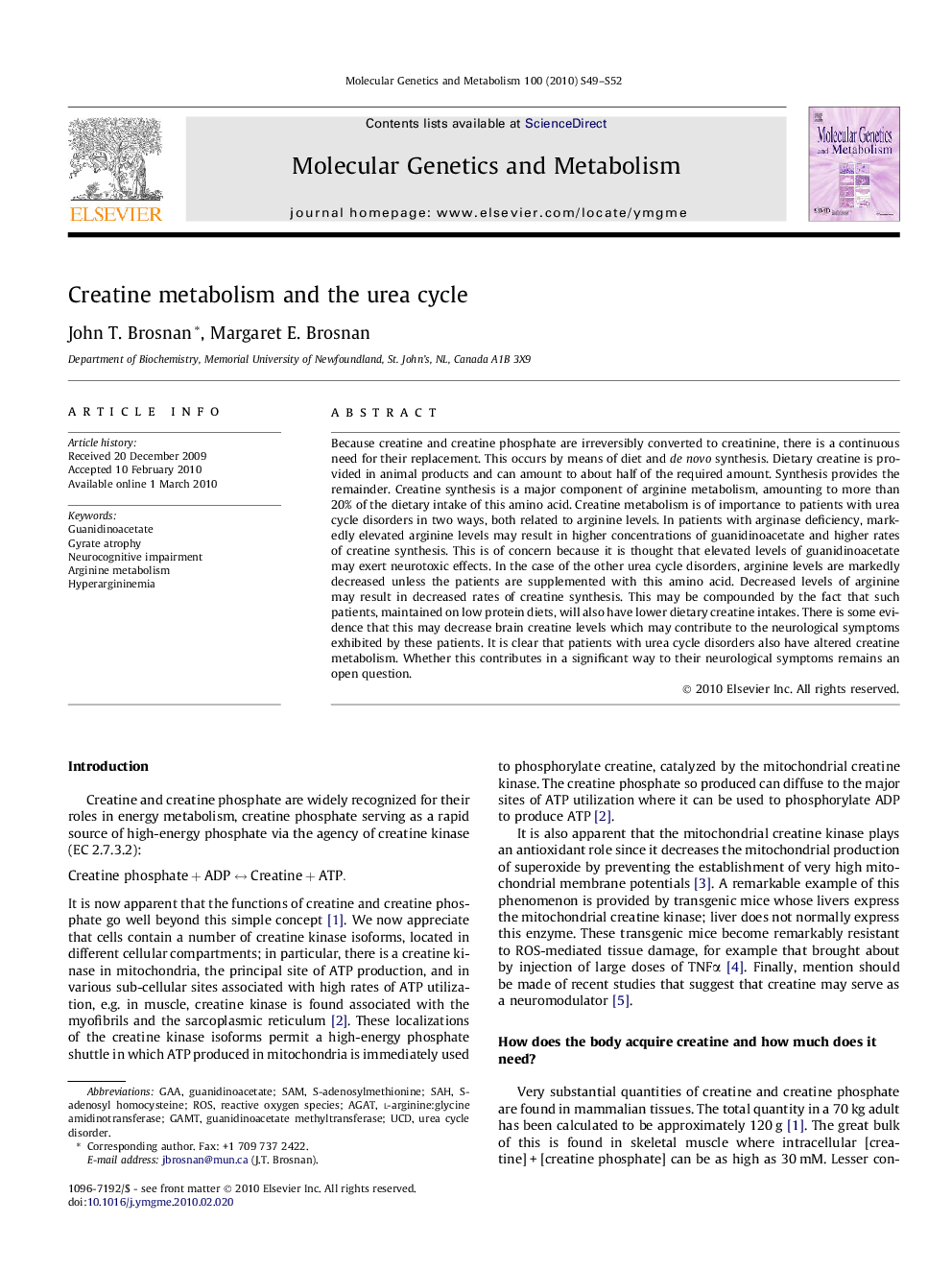| Article ID | Journal | Published Year | Pages | File Type |
|---|---|---|---|---|
| 1999591 | Molecular Genetics and Metabolism | 2010 | 4 Pages |
Because creatine and creatine phosphate are irreversibly converted to creatinine, there is a continuous need for their replacement. This occurs by means of diet and de novo synthesis. Dietary creatine is provided in animal products and can amount to about half of the required amount. Synthesis provides the remainder. Creatine synthesis is a major component of arginine metabolism, amounting to more than 20% of the dietary intake of this amino acid. Creatine metabolism is of importance to patients with urea cycle disorders in two ways, both related to arginine levels. In patients with arginase deficiency, markedly elevated arginine levels may result in higher concentrations of guanidinoacetate and higher rates of creatine synthesis. This is of concern because it is thought that elevated levels of guanidinoacetate may exert neurotoxic effects. In the case of the other urea cycle disorders, arginine levels are markedly decreased unless the patients are supplemented with this amino acid. Decreased levels of arginine may result in decreased rates of creatine synthesis. This may be compounded by the fact that such patients, maintained on low protein diets, will also have lower dietary creatine intakes. There is some evidence that this may decrease brain creatine levels which may contribute to the neurological symptoms exhibited by these patients. It is clear that patients with urea cycle disorders also have altered creatine metabolism. Whether this contributes in a significant way to their neurological symptoms remains an open question.
